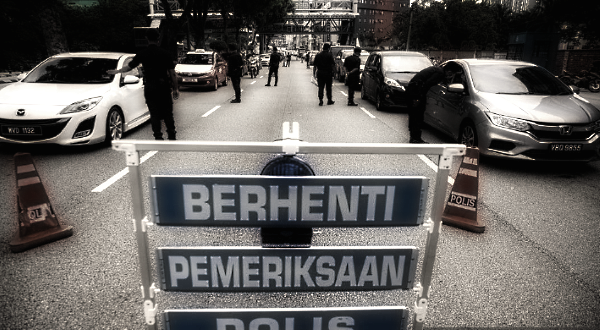Sin Chew Daily
The coronavirus outbreak has picked up in recent weeks. Although many did not wish that MCO would be reintroduced in their areas, they still hoped the government would adopt the necessary restrictive measures to contain the spread of the virus, especially in more serious areas.
On Tuesday, it was announced that six of the nine districts in Selangor would be put under MCO, and the national capital would be surrounded by MCO districts, subjecting the two million people in the city to be confined within 243 square kilometers of land for twelve days from May 6 to 17.
Such a "new-style" MCO is seen as a more flexible movement control order targeting only places badly hit by the coronavirus. Compared to the first sweeping MCO imposed from March 18 last year, the latest restriction comes much more pragmatic and will do less damage to the national economy as well as the people's day-to-day lives.
Judging from the current trend of the pandemic, more targeted MCO appears to be a necessary measure to contain the virus in future, as social and economic impact will be minimal.
No doubt, the COVID-19 pandemic is peaking in the country. For the 15 days before May 4, the number of new positive cases totaled 41,987 nationwide at a daily average of 2,799 cases, or about 3.09 times the daily average of 906 cases over the past one year.
In addition to Selangor, Kuala Lumpur, Sarawak and Kelantan have also seen sharp increases in daily new infection numbers, and these are the areas that may be subjected to targeted MCO next.
Take Kelantan for instance, some 6,527 new cases were reported in just half a month with an average of 379 infections for every 100,000 people. As a ratio to the total population, Kelantan is actually more serious than Selangor (199/100,000) and the national average of 129/100,000.
We would suggest that the government take cue from the international practice of using the ratios of active cases and infections to the overall population as a benchmark to gauge the seriousness of the virus outbreak in a certain locality.

This time, the restrictions imposed on the six MCO district in Selangor are mainly travel ban across state and district borders, no dining-in for restaurants and eateries as well as social activities.
Senior defense minister Ismail Sabri announced on Tuesday that Ramadan bazaars would still be allowed to operate, but this "highly risky" decision has already been vetoed by Selangor MB Amirudin Shari, that the bazaars will no longer be allowed to operate from this Saturday. However, buka puasa markets and night markets are still allowed to operate until 10.00p.m.
Actually, whether Ramadan bazaars are allowed to operate is just a matter of a couple of days, but it is also a question of principle of the Selangor state government. By the way, fighting the virus is about doing the right thing, and Amirudin has indeed set a good example.
Meanwhile, all Raya open house events will not be allowed. Given the different levels of control orders, other than places under EMCO, mutual visits are allowed for one to three days with the hope infection risk could be brought to a minimum.
Having said that, mutual visits during Raya are themselves a kind of social activity, and it is very difficult for the government to rule that face masks must be put on while chatting with friends and relatives. There is always the risk of infection if just one of the people happens to be a virus carrier, no matter how brief the gathering is.
MCO has to start from ourselves, and self discipline is of utmost importance in our continuous fight against the virus. We can only defeat the virus if we strictly adhere to the SOPs.
Even if we have received two doses of the vaccine, Pfizer-BioNTech will only provide 90% protection while AstraZeneca only 79%, and we still can get infected if we come into contact with a carrier.
Beginning Friday, we will be adopting a more scientific approach in dealing with the virus, namely the Hotspots Identification for Dynamic Engagement (HIDE) system which allows the government to monitor and track virus hot spots for reinforced enforcement while members of the public can more precisely identify high risk areas and avoid them.
We believe the proper deployment of HIDE system will help drastically reduce infection risks.
ADVERTISEMENT
ADVERTISEMENT


































